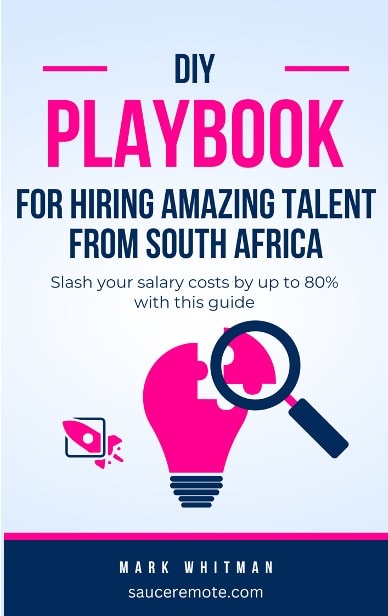Who is the best Employer of Record in South Africa?
How does an employer of record (EOR) in South Africa work?
Well, it’s time to put all the chips on the table. Join me as I look at the best EOR in South Africa and what makes it so great.
Ready? Let’s roll.
What Is an Employer of Record (EOR) in South Africa?
An Employer of Record in South Africa is a third-party organisation that hires employees on your behalf and handles all the local legal and administrative responsibilities.
Essentially, the EOR becomes the legal employer while you retain control over the day-to-day management of your team.
Pro tip: Check out my guide on What Does EOR Stand For to learn more.
So, why do businesses opt for an EOR in South Africa?
It’s simple:
- Quick Expansion: You bypass the need to establish a legal entity in South Africa.
- Compliance: You navigate local labour laws without any employee misclassification headaches.
- Cost Efficiency: You reduce overhead costs associated with setting up a new branch.
The long and the short of it?
EOR services in South Africa lets companies tap into new markets quickly, compliantly and affordably.
But wait. Why does your company need an EOR to access this exclusive labour market? Let me explain.

Discover how to slash your salary costs by 80%
Get our exact process for hiring amazing overseas talent from South Africa. Includes copy-and-paste templates and a detailed salary guide.
The South African Employment Landscape
When I first researched hiring in South Africa, I discovered that the country has robust labour laws designed to protect employees.
While this is excellent for workers, it does mean there are several regulations employers need to navigate. Here are the most important ones:
Working Hours and Overtime
In South Africa, the standard workweek is 45 hours. This time is typically divided into 9 hours per day for a five-day workweek or 8 hours per day if the employee works more than five days a week.
Overtime is permitted but capped at 10 hours per week. Overtime pay must be at least 1.5 times the employee's regular wage.
For more details, refer to the Basic Conditions of Employment Act on the Department of Employment and Labour's website.
Compensation and Currency
The local currency is the South African Rand (ZAR), and employees generally expect to be paid in this currency.
While not legally mandated, it's customary for companies to offer a 13th-month salary or bonus in December, which can be a significant incentive for employees.
Hire remote talent from South Africa & slash salary costs by 80%
Salaries start from £8,000 per year!
Public Holidays and Annual Leave
South Africa recognises 12 public holidays annually. Employees are entitled to these days off with full pay.
Many companies observe a shutdown period during the December holidays, impacting scheduling and project timelines.
According to the Basic Conditions of Employment Act, employees are entitled to at least 21 consecutive days of paid annual leave per year.
Pro tip: Are you not sure if your independent consultants are entitled to federal holiday pay? Check out my guide, “Are Independent Consultants Entitled to Federal Holiday Pay?”
Tax Obligations and Contributions
Ah, my favourite topic: taxes. Employers must navigate several tax obligations:
- Pay-As-You-Earn (PAYE): Employers must withhold income tax from employees' salaries and remit it to the South African Revenue Service (SARS).
- Unemployment Insurance Fund (UIF): Both employer and employee must contribute 1% of the employee's salary each to the UIF, totalling 2%. This fund provides short-term relief to workers when they become unemployed or cannot work.
- Skills Development Levy (SDL): Employers pay 1% of the total payroll to fund employee training and development.
Value-Added Tax (VAT)
If your company provides services within South Africa and meets certain thresholds, you may be required to register for Value-Added Tax (VAT) at a rate of 15%. More information can be found on the SARS VAT page.
Hire remote talent from South Africa & slash salary costs by 80%
Salaries start from £8,000 per year!
Leave Policies and Parental Leave
South African employees are entitled to various types of leave:
- Sick Leave: Employees are entitled to the number of days they would typically work in a six-week period, over a three-year cycle.
- Parental Leave: New parents are entitled to 10 consecutive days of unpaid parental leave. While employers aren't required to pay for this leave, eligible employees can apply for benefits from the Unemployment Insurance Fund.
- Maternity Leave: Female employees are entitled to at least four consecutive months of maternity leave.
Probation and Termination Periods
The probationary period in South Africa doesn't have a statutory maximum duration but must be reasonable for the position—typically up to three months.
Notice periods for termination are as follows:
- One week if employed for six months or less.
- Two weeks if employed for more than six months but less than a year.
- Four weeks if employed for one year or more.
Those are quite a lot of regulations, and trust me; there are even more.
Understanding and adhering to these regulations is vital to avoid legal issues and financial penalties.
But there’s hope. With local expertise, this can be a manageable task.
This is where partnering with an EOR South Africa becomes invaluable.
An EOR like Sauce ensures all employment practices comply with local laws, giving you peace of mind to focus on your core business activities.
So, how do you choose the best South African EOR service? Read on.
Hire remote talent from South Africa & slash salary costs by 80%
Salaries start from £8,000 per year!
How to Choose a South African EOR Service
Selecting the right Employer of Record service is crucial for a successful expansion into South Africa. Here are some key factors to consider when choosing an EOR provider:
1. Expertise in South African Labour Laws
Ensure the EOR has in-depth knowledge of South African employment laws and regulations. This expertise is essential to maintain compliance and avoid legal pitfalls.
For example, Sauce has a team of experts well-versed in South African labour laws, ensuring that all employment practices meet legal requirements.
2. Comprehensive Service Offering
Look for an EOR that provides a full suite of services, including payroll management, tax compliance, benefits administration, and legal support.
And you don’t have to look far to find such a service.
Sauce offers end-to-end EOR services, from drafting employment contracts to managing employee benefits and ensuring tax compliance.
3. Transparent Pricing Structure
Transparent pricing helps you budget accurately without unexpected costs down the line. Make sure the EOR provides clear information on fees and any additional charges.
With Sauce, you receive a detailed pricing structure upfront, eliminating hidden fees and allowing for precise financial planning. Save time. Save money. It’s that easy.
4. Personalised Solutions
Your business has unique needs. An EOR that offers tailored solutions can better support your specific requirements and growth objectives.
I know Sauce takes the time to understand your business goals and provide customised solutions that align with your expansion strategy.
5. Reputation and Client Testimonials
Research the EOR's track record. Positive reviews and testimonials from other clients can provide insight into the quality of their services.
Sauce has a strong reputation for excellent customer service, backed by testimonials from businesses that have successfully expanded into South Africa.
6. Local Presence and Cultural Understanding
An EOR with a local presence can offer valuable insights into the South African market and culture, facilitating smoother operations.
Hire remote talent from South Africa & slash salary costs by 80%
Salaries start from £8,000 per year!
Making the Decision
Choosing the right EOR in South Africa is about finding a partner who aligns with your business values and can effectively support your growth.
Considering these factors, you'll be well-equipped to make an informed decision.
But wait, why am I so passionate about Sauce, the best EOR in South Africa?
Why I Chose Sauce
After evaluating several South African EOR providers, I found that Sauce met all these criteria and more.
Their expertise in the South African market, personalised approach, and commitment to transparency made them the ideal partner for my business expansion.
With Sauce's support, I was able to onboard local talent smoothly. Their team handled everything from contracts to payroll, allowing me to focus on integrating my new team members into the company culture.
My Final Thoughts
Expanding into South Africa doesn't have to be daunting. With the right support from an Employer of Record in South Africa, you can effortlessly navigate the complexities of local employment laws.
Ready to take the next step? Hire with Sauce today.
